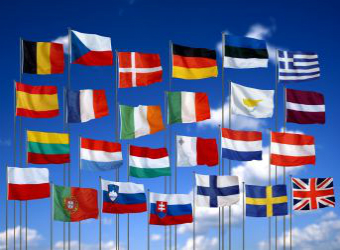EU member states have announced they will suspend the export of military equipment to Egypt following a violent crackdown by the security forces on supporters of deposed president Mohamed Morsi.
The move falls short of a full embargo on the sale of weapons that several countries believed would have put more pressure on Egypt’s army-backed government to end an escalation in violence that has so far claimed more than 900 lives.
European foreign ministers at an emergency meeting in Brussels on Wednesday also agreed to review financial aid programmes with Egypt but gave assurances that humanitarian support would continue.
“We have agreed . . . to review the issue of our assistance to Egypt with the understanding that assistance to the most vulnerable groups and to civil society must continue,” said Catherine Ashton, the EU’s foreign policy chief.
“Member states also agreed to suspend export licences to Egypt for any equipment which might be used for internal repression and . . . review their security assistance with Egypt,” Ms Ashton added.
The suspension of “export licences” means that EU companies will not be allowed to sell a range of military equipment, including batons, ammunition and tear gas, said two EU officials after the meeting.
“We cannot accept that pressure be put on the will of the Egyptian people,” Mohamed Moustafa Kamal, Egypt’s ambassador to Paris, said on Wednesday after the announcement.
“In Egypt, like in any other country, you don’t talk with people who use weapons to negotiate. These aren’t political parties,” Mr Kamal said.
“We are in favour of all dialogue in a political context, in the context of national reconciliation, and we’re ready to make every effort in that regard.”
However, as the sale of security goods is decided by each member state individually, there will be a degree of flexibility as to what kind of military equipment each country wants to suspend.
Ahead of Wednesday’s emergency meeting of EU foreign ministers in Brussels, it emerged that Germany, France, Italy, Sweden, Austria and the Netherlands were among the countries that pushed for an outright ban on the export of weapons to Egypt.
“I have proposed blocking military supplies,” said Emma Bonino, Italy’s foreign minister, ahead of the meeting.
Frans Timmermans, the Dutch foreign minister, urged the EU to set common guidelines to suspend the sale of weapons to Egypt, saying it would not be wise to provide the Egyptians with arms in this situation.
Carl Bildt, Sweden’s foreign minister, echoed his Italian and Dutch colleagues’ remarks, stressing that European taxpayers money should not be used to fund a government massacring its own civilians. “Clearly, not sending taxpayers money to people who massacre, that’s a minimum,” he said.
However, the EU bloc adopted a softer position, choosing not to cut financial aid worth €5bn for mainly civil society and opting only to suspend weapon sales. Several countries feared a tougher position might weaken the EU’s leverage in their efforts to persuade the interim government to restore democratic rule.
“We want the way to be kept open for the European Union and the member states of the European Union to be able to try to fulfill that role in the future,” said William Hague, Britain’s foreign secretary.
European officials also said that freezing monetary support would predominantly harm the country’s poorest, while the regime could still count on the financial help promised by Saudi Arabia, which has officially pledged support to the army-backed rulers.
The EU in November pledged a total of €5bn in grants and loans to Egypt for a series of initiatives and projects on condition that democratic reform was implemented. A small fraction of the overall sum has been disbursed.
Source: The Financial Times



